EDIT:
I thought about this one and decided to change it to an actual answer. Since you're using CF2016+, you have access to some of the more modern features that CF offers. First, Query of Query is a great tool, but it can be very slow. Especially for lower record counts. And then if there are a lot of records in your base query, it can eat up your server's memory, since it's an in-memory operation. We can accomplish our goal without the need of a QoQ.
One way we can sort of duplicate the functionality that you're looking for is with some of the newer CF functions. filter, each and sort all work on a query object. These are the member function versions of these, but I think they look cleaner. Plus, I've used cfscript-syntax.
I mostly reused my original CFSCript query (all_employees), that creates the query object, but I added an f column to it, which holds the text to be filtered on.
all_employees = QueryNew("userdefined,hello,f", "varchar,varchar,varchar",
[
["test","pure text","takeMe"],
["2","number as varchar","takeMe"],
["03","leading zero","takeMe"],
[" 4 ","leading and trailing spaces","takeMe"],
["5 ","extra trailing spaces","takeMe"],
[" 6","extra leading spaces","takeMe"],
["aasdfadsf","adsfasdfasd","dontTakeMe"],
["165e73","scientific notation","takeMe"],
["1.5","decimal","takeMe"],
["1,5","comma-delimited (or non-US decimal)","takeMe"],
["1.0","valid decimal","takeMe"],
["1.","invalid decimal","takeMe"],
["1,000","number with comma","takeMe"]
]
) ;
The original base query didn't have a WHERE clause, so no additional filtering was being done on the initial results. But if we needed to, we could duplicate that with QueryFilter or .filter.
filt = all_employees.filter( function(whereclause){ return ( whereclause.f == "takeMe"); } ) ;
This takes the all_employees query and applies a function that will only return rows that match our function requirements. So any row of the query where f == "takeMe". That's like WHERE f = 'takeMe' in a query. That sets the new filtered results into a new query object filt.
Then we can use QueryEach or .each to go through every row of our new filtered query to modify what we need to. In this case, we're building a new array for the values we want. A for/in loop would probably be faster; I haven't tested.
filt.each(
function(r) {
retval.append(
ISNUMERIC(r.userDefined) ? right("00000000"<rim(rtrim((r.userdefined))),8) : r.userDefined
) ;
}
) ;
Now that we have a new array with the results we want, the original QoQ wanted to order those results. We can do this with ArraySort or .sort.
retval.sort("textnocase") ;
In my test, CF2016 seemed to pass retval.sort() as a boolean and didn't return the sorted array, but CF2018 did. This was expected behavior, since the return type was changed in CF2018. Regardless, both will sort the retval array, so that when we dump the retval array, it's in the chosen order.
And as I always suggest, load test on your system with your data. Like I said, this is only one way to go about what you're trying to do. There are others that may be faster.
https://cffiddle.org/app/file?filepath=dedd219b-6b27-451d-972a-7af75c25d897/54e5559a-b42e-4bf6-b19b-075bfd17bde2/67c0856d-bdb3-4c92-82ea-840e6b8b0214.cfm
(CF2018) > https://trycf.com/gist/2a3762dabf10ad695a925d2bc8e55b09/acf2018?theme=monokai
https://helpx.adobe.com/coldfusion/cfml-reference/coldfusion-functions/functions-m-r/queryfilter.html
https://helpx.adobe.com/coldfusion/cfml-reference/coldfusion-functions/functions-m-r/queryeach.html
https://helpx.adobe.com/coldfusion/cfml-reference/coldfusion-functions/functions-a-b/arraysort.html
ORIGINAL:
This is more of a comment than an answer, but it's much too long for a comment.
I wanted to mention a couple of things to watch out for.
First, ColdFusion's isNumeric() can sometimes have unexpected results. It doesn't really check to see if a value is a number. It checks if a string can be converted to number. So there are all sorts of values that isNumeric() will see as numeric. EX: 1e3 is scientific notation for 1000. isNumeric("1e3") will return true.
My second suggestion is how to deal with leading and trailing space in a "numeric" value, EX: " 4 ". isNumeric() will return true for this one, but when you append and trim for your final value, it will come out as "000000 4". My suggestion to deal with these is to use val() or ltrim(rtrim()) around your column. val() will reduce it to a basic number (" 1.0 " >> "1") but ltrim(rtrim()) will retain the number but get rid of the space (" 1.0 " >> "1.0") and also retain the "scientific notation" value (" 1e3 " >> "1e3"). Both still miss 1,000, so if that's a concern you'll need to handle that. But the method you use totally depends on the values your data contains. Number verification isn't always as easy as it seems it should be.
I've always been a firm believer in GIGO -- Garbage In, Garbage Out. I see basic data cleansing as part of my job. But if it's extreme or regular, I'll tell the source to fix it or their stuff won't work right. When it comes to data, it's impossible to account for all possibilities, but we can check for common expectations. It's always easier to whitelist than it is to blacklist.
<cfscript>
all_employees = QueryNew("userdefined,hello", "varchar,varchar",
[
["test","pure text"],
["2","number as varchar"],
["03","leading zero"],
[" 4 ","leading and trailing spaces"],
["5 ","extra trailing spaces"],
[" 6","extra leading spaces"],
["165e73","scientific notation"],
["1.5","decimal"],
["1,5","comma-delimited (or non-US decimal)"],
["1.0","valid decimal"],
["1.","invalid decimal"],
["1,000","number with comma"]
]
)
//writedump(all_employees) ;
retval = [] ;
for (r in all_employees) {
retval.append(
{
"1 - RowInput" : r.userdefined.replace(" ","*","all") , // Replace space with * for output visibility.
"2 - IsNumeric?" : ISNUMERIC(r.userdefined) ,
"3 - FirstOutput": ( ISNUMERIC(r.userDefined) ? right("00000000"&r.userdefined,8) : r.userDefined ) ,
"4 - ValOutput" : ( ISNUMERIC(r.userDefined) ? right("00000000"&val(r.userdefined),8) : r.userDefined ) ,
"5 - TrimOutput" : ( ISNUMERIC(r.userDefined) ? right("00000000"<rim(rtrim((r.userdefined))),8) : r.userDefined )
}
) ;
}
writeDump(retval) ;
</cfscript>
https://trycf.com/gist/03164081321977462f8e9e4916476ed3/acf2018?theme=monokai

